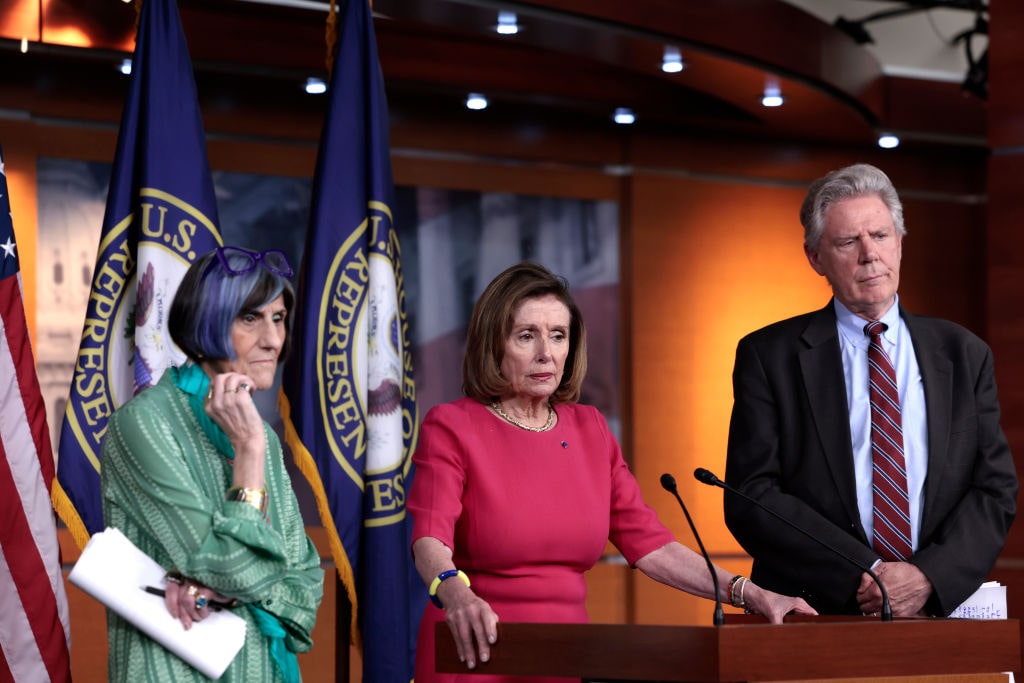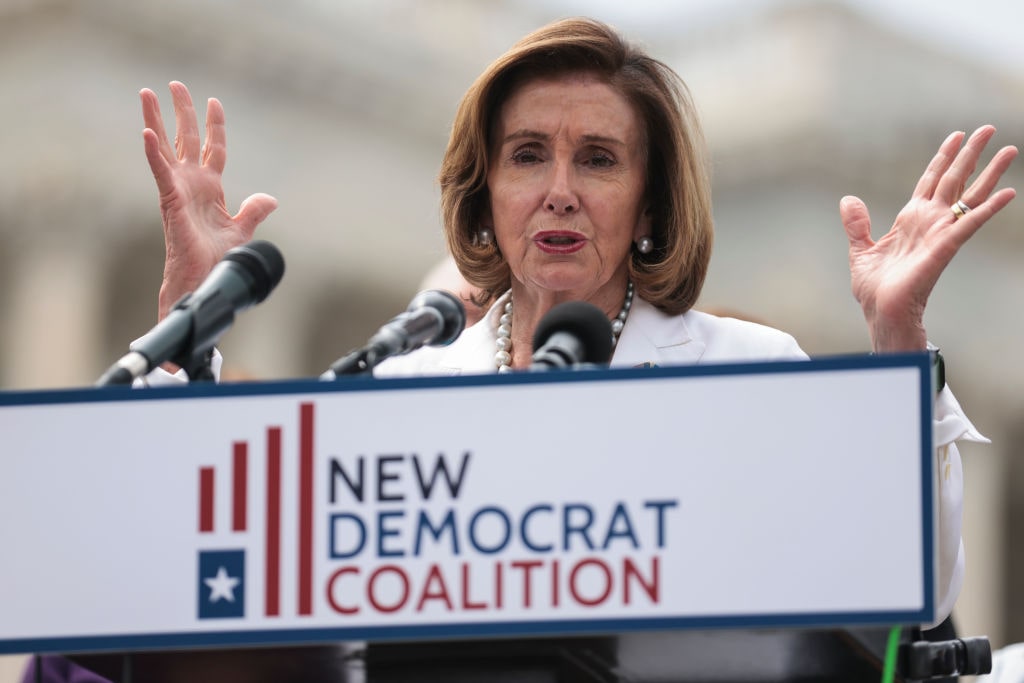Worried about exorbitant prices at the pump? Don’t be; the Democrats are here to save the day. No, they aren’t loosening their death grip on the oil industry and letting that black gold flow. Instead, left-wing politicians in the House of Representatives have passed a law – along party lines, of course – to prevent price gouging. Just like their recent efforts to appropriate more funds for the FDA to fight the baby formula shortage and the bill establishing a new domestic terrorism task force, this act almost certainly won’t make it through the Senate. But it’s okay; that isn’t really the point of a message bill anyway.
A message bill is a piece of legislation that isn’t designed to actually change policy so much as virtue signal to potential voters. From Wednesday, May 18, to Thursday, May 19, Democrats in the House of Representatives held five votes, passing three bills and two amendments more or less along party lines, knowing full well that none of those measures stood a chance of acquiring the 60 votes needed to clear the Senate.
Fuel for the Partisan Fires?
The Consumer Fuel Price Gouging Prevention Act cleared the House 217-207 Thursday afternoon, with no one outside the Democratic Party supporting the bill. Five Republicans abstained from voting, and four Democrats – Reps. Lizzie Fletcher of Texas, Jared Golden of Maine, Stephanie Murphy of Florida, and Kathleen Rice of New York – crossed the aisle to oppose the measure. Under this act, the president could issue an emergency proclamation for any area in the jurisdiction of the US, and any fuel seller caught charging an amount that “grossly exceeds” the average price at the same location during the 30-day period before the proclamation date or “another appropriate benchmark period, as determined by the Commission,” with “Commission” meaning the Federal Trade Commission (FTC).
Rep. Val Demings (D-FL) introduced an amendment to require the FTC to conduct an investigation to determine if the price of gas is being manipulated by reducing refiner capacity or some other form of market manipulation. Again, Democrats – most of them, anyway – passed this measure without any GOP support. Six Republicans didn’t vote, and three Democrats – Reps. Fletcher, Murphy, and Rice – opposed, resulting in a final tally of 217-205.
Rep. Chris Pappas (D-NH) had an amendment that establishes a new unit at the FTC devoted to “protecting public interest by monitoring fuel markets to facilitate transparent and competitive market practices.” It passed 214-207, with seven Republicans abstaining and six Democrats opposing. This time, California’s Jim Costa, Josh Gottheimer of New Jersey, Connecticut’s James Himes, and Abigail Spanberger of Virginia joined Reps. Murphy and Rice.
A New Take on Terror?
The Domestic Terrorism Prevention Act of 2022 would establish a new taskforce between the Department of Homeland Security (DHS), the Department of Justice (DOJ), and the Federal Bureau of Investigation (FBI) to “monitor, analyze, investigate, and prosecute domestic terrorism.” This act clearly links hate crimes to domestic terror. Additionally, the group would “analyze and combat white supremacist and neo-Nazi infiltration of the uniformed services and federal law enforcement.”
This act primarily shuffles staff about to create a new executive branch group that would spend a considerable amount of time and tax dollars studying the issue and reporting on it to Congress. On Wednesday, a single Republican – Adam Kinzinger of Illinois, surprise, surprise – joined all the Democrats in passing this bill 221-203, with just four Republicans not voting.

(Photo by Anna Moneymaker/Getty Images)
A Winning Formula?
The House also passed the Infant Formula Supplemental Appropriations Act on Wednesday, though the vote was a little more bipartisan, and therefore may come closer to either of the other two in passing the Senate. A single Democrat didn’t vote, while five Republicans abstained and 12 joined their colleagues on the left, leaving a final vote of 219-192. This bill provides $28 million to the Food and Drug Administration (FDA) to “address the current shortage of FDA-regulated infant formula and certain medical foods in the United States; and prevent future shortages, including by taking steps that are necessary to prevent fraudulent products from entering the U.S. market.”
The extremely short act doesn’t explain how the FDA should – or, for that matter, could – go about achieving that mission. It simply approves another $28 million for “Salaries and Expenses.”
But Did Voters Get the Message?
All three bills – and the two amendments – have a few things in common. First, they don’t actually do anything other than funnel more money to executive branch agencies and redirect some staff to investigate and report on the issues terrorizing Americans today. Second, even if they did command some solution to the issues at hand that are quantifiable, they stand next to no chance of becoming law. And finally, they each likely have the same primary function – and that isn’t solving or even looking into the problems in America.
With failure all but guaranteed for two and still quite likely for the third, each of five votes was almost certainly designed to send the message that congressional Democrats are hard at work solving the crisis. Only for these politicians, the crisis isn’t high fuel prices, a formula shortage, or even domestic terror; it’s the midterm elections coming in November.




